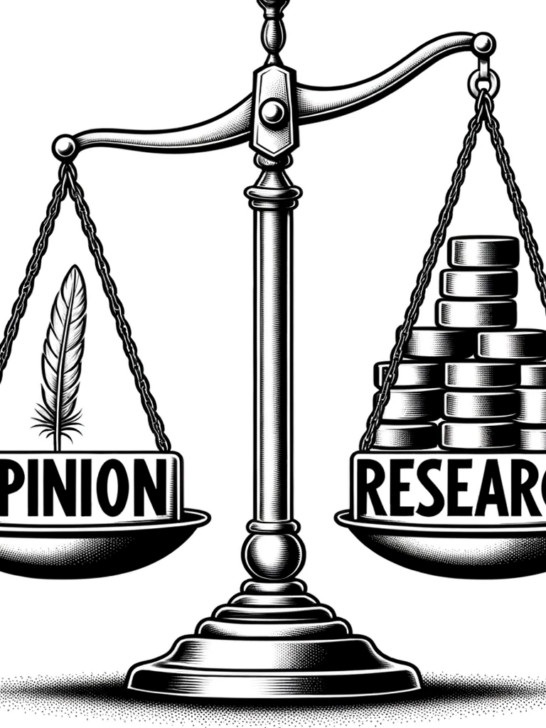About
Contribute
Courses
Recommended
- Academic Writing – How to Write for the Academic Community
- Authority – How to Establish Credibility in Speech & Writing
- Citation – How to Cite Sources in Academic and Professional Writing
- Coherence – How to Achieve Coherence in Writing
- Coauthorship – How to Work with Coauthors
- Flow – How to Create Flow in Writing
- Kairos – How to Strategically Time Your Arguments for Impact
- Page Design – How to Design Messages for Maximum Impact
- Paraphrasing – How to Paraphrase with Clarity & Concision
- Professional Writing – How to Write for the Professional World
- Structured Revision – How to Revise Your Work
- Writer’s Guide – How to Improve Your Writing
All Topics
Citation – Types of Citation Styles in Academic & Professional Writing
- APA – Publication Manual of the APA: 7th Edition
- Attribution – What Is The Role of Attribution In Academic & Professional Writing?
- Citation Guide – Learn How to Cite Sources in Academic and Professional Writing
- Citation Conventions – What is the Role of Citation in Academic & Professional Writing?
- Citation Conventions – When Are Citations Required in Academic & Professional Writing?
- Citation – How to Connect Evidence to Your Claims
- Citation & Voice – How to Distinguish Your Ideas from Your Sources
- Paraphrasing – How to Paraphrase with Clarity & Concision
- Quotation – When & How to Use Quotes in Your Writing
- Summary – Learn How To Summarize Sources in Academic & Professional Writing
- Citation Tools
- MLA – MLA Handbook, 9th Edition
Collaboration – What is the Role of Collaboration in Academic & Professional Writing?
- Coauthorship – How to Work with Coauthors
- Collaboration Tools – The Collaborative Tools You Need for Success on School Projects
- Conflict Resolution – How to Manage Conflicts & Keep Projects On Track
- Critique – A Research-Based Guide to Criticism in Academic & Professional Writing
- Peer Review – How to Make The Most of Peer Review
- Team Leadership – How to Be the Team Leader Everyone Wishes They Had
- Teamwork – Why Winning Teams Have It And How To Get It
- Managing Group Projects
Design – The Visual Language That Shapes Our World
Related Concepts: Design Thinking; Infographic; Literacy; Venture Design; Semiotics; Visual Language
- Data Visualization – Information Visualization – The Art of Visualizing Meaning For Better Decision-Making
- Design Principles – The Big Design Principles You Need to Know to Create Compelling Messages
- Elements of Art – How to Leverage the Power of Art to Make Visually Compelling Documents
- Elements of Design – Master the Fundamentals of Visual Composition
- Page Design – How to Design Messages for Maximum Impact
- Universal Design Principles – How to Design for Everyone
- Usability – How to Research & Improve Usability
- Visualization – Visual Representation
Discourse
Related Concepts: Discourse Conventions; Rhetorical Analysis
- Causes & Effects
- Classification
- Comparison & Contrast
- Definition
- Description
- Discourse Conventions
- Exemplification
- Exposition
- Narration
Drafting – Composing – What is the Drafting Process?
Related Concepts: The Writing Process – Research on Composing
Editing
- Edit for Assignment Requirements
- Edit for Diction
- Edit for Sentence Structure
- Edit for Strings of Prepositional Phrases
- Edit Paragraphs
- Proofreading
Genre
- Annotated Bibliography
- Argument, Argumentation
- Autobiography
- Cover Letter, Letter of Transmittal
- Conclusions – How to Write Compelling Conclusions
- Dialogue – The Difficulty of Speaking
- Executive Summary
- Formal Reports
- Infographics
- Instructions & Processes
- Introductions
- Pitch
- Presentations
- Problem Definition
- Progress Reports
- Proposals
- Recommendation Reports
- Research Proposal
- Research Protocol
- Reviews and Recommendations
- Subjects & Concepts
- Summary
- Syllabus
- Team Charter
Grammar
- Mechanics
- Modifiers, Modification
- Parallelism, Parallel Structure, Parallel Construction
- Sentences
- Parts of a Sentence
- Sentence Errors
- Sentence Patterns
- Sentence Structure – Syntax
- Coordination & Subordination
- Primer Sentences
- Subject-Pronoun Agreement
- Sentence Types
- The 9 Parts of Speech
- Articles
- Conjunctions
- Coordinating Conjunctions
- Subordinating Conjunctions
Information Literacy – Discerning Quality Information from Noise
- Archive – What Do Writers Need to Know About the Archive?
- Authority – How to Establish Credibility in Speech & Writing
- Canon – Why is the Concept of the Canon So Important to Writers?
- Copyright
- Empathetic Information Literacy
- Epistemology – Theories of Knowledge
- Empirical Knowledge – Empiricism
- Knowledge
- Embodied Knowledge
- Procedural Knowledge
- Rhetorical Knowledge
- Tacit Knowledge
- Evidence
- Information Architecture
- Information Design
- Information Literacy Perspectives & Practices – ACRL Framework for Higher Education
- Information, Data, Content – Building Blocks Of The Digital Information Age
- Interpretation, Interpretative Frameworks
- Text, Intertextuality
- The CRAAP Test
Invention
- Commonplaces (Topoi)
- Conversations with Others
- Felt Sense
- Finding the Bunny: How to Make a Personal Connection to Your Writing
- Freewriting
- Heuristics
- Inner Speech – How to Trust Your Writerly Voice
- Preliminary Research
- Visual Brainstorming
Literacy
Related Concepts: Information Literacy
- 21st Century Literacies & Writing Studies
- Cognitive, Intrapersonal, and Interpersonal Competencies
- Communication
- Digital Literacy
- Quantitative Literacy
- Semiotics: Sign, Signifier, Signified
- Symbolic Communication
- Symbolic Systems
- Visual Language
- Visual Literacy
- Articles
- Writing
Mindset
- Growth Mindset
- Habits of Mind – How to Foster Intellectual Growth
- Intellectual Openness
- Professionalism & Work Ethic
- Resilience
- Self-Regulation & Metacognition
- Balance Believing with Doubting
- Develop Effective Writing Habits
- Establish a Comfortable Place to Write
- Overcome Discouragement
- Reading and Disruptive Emotions
- Play the Believing Game
- Play the Doubting Game
- Reading and Disruptive Emotions
- Scheduling Writing
- Why Does Practice Matter?
- Why Should I Keep a Writer’s Log?
Organization
- Organizational Patterns
- Announcements, Signposting, & Organizational Theses
- Causal Order
- Chronological Order
- Deductive Order, Deductive Reasoning, Deductive Writing
- Given-to-New Order
- Global Perspective – Rhetorical Perspective
- Inductive Order, Inductive Reasoning, Inductive Writing
- Local Perspective
- Metalanguage
- Spatial Order
- Transitions – Transition Words – Transitional Phases
- Organizational Structures
- Paragraphs
- Flow, Transitions, Coherence @ Paragraph Level
- Paragraph Transitions
- Sentence Order within Paragraphs
- Topic Sentences & Paragraph Development
- Unity @ the Paragraph Level
- Sentence Schemas
Planning – What Are the Dispositions and Planning Strategies of Successful Writers?
Research
- Applied Research, Basic Research
- Research Ethics
- Research Methodology
- Research Methods
- Empirical Research Methods
- Informal Research Methods
- Mixed Research Methods
- Customer Discovery
- Design Thinking
- Usability & User Experience Research
[ See also Corpus Linguistics Analysis, A Bird’s Eye View of Writing; Usability and User Experience Research ] - Venture Design
- Qualitative Research Methods
- Quantitative Research Methods
- Textual Research Methods
- Scholarship
Revision
- Rereading
- Revise for a More Effective Point of View
- Revise for Substantive Prose
- Revise for Thesis or Research Question
- Structured Revision – How to Revise Your Work
Rhetoric – Exploring Its Definition and Impact on Modern Communication
- Rhetorical Moves and Academic Writing
- Rhetorical Reasoning
- Rhetorical Situation
- Audience – Audience Awareness
- Medium, Media
- Occasion, Exigency, Kairos – How to Decode Meaning-Making Practices
- Perspective – What is the Role of Perspective in Reading & Writing?
- Purpose – Aim of Discourse – Intention
- Register
- Subject, Topic
- Text, Composition
- Writing Tools
- Writer, Speaker, Knowledge Worker
- Rhetorical Stance
- Rhetorical Theory – The Ultimate Tool for Effective Communication
Sharing – Publishing
Style
Related Concepts: Audience – Audience Awareness; Discourse Community; Rhetoricity
- The Elements of Style
- Brevity – Say More with Less
- Clarity (in Speech and Writing)
- Coherence – How to Achieve Coherence in Writing
- Flow – How to Create Flow in Writing
- Inclusivity – Inclusive Language
- Ableist Language – Disability Metaphors – Disability Studies
- Simplicity
- Unity
- Writing Style
The Writing Process – Research on Composing
- Discovering Your Unique Writing Process: A Guide to Self-Reflection
- Problem-Solving Strategies for Writers: a Review of Research
- The 7 Habits of Mind & The Writing Process
- The Secret, Hidden Writing Process: How to Tap Your Creative Potential
- The Ultimate Blueprint: A Research-Driven Deep Dive into The 13 Steps of the Writing Process
Writing Studies
- Communication Studies
- Composition Studies
- Professional and Technical Communication
- What is Workplace Writing or the Discipline of Professional and Technical Communication?
- An Overview of Professional and Technical Communication
- Cognitive, Intrapersonal, and Interpersonal Competencies
- Psychology & Writing Studies
- Rhetoric & Technology
- Writers @ Work


